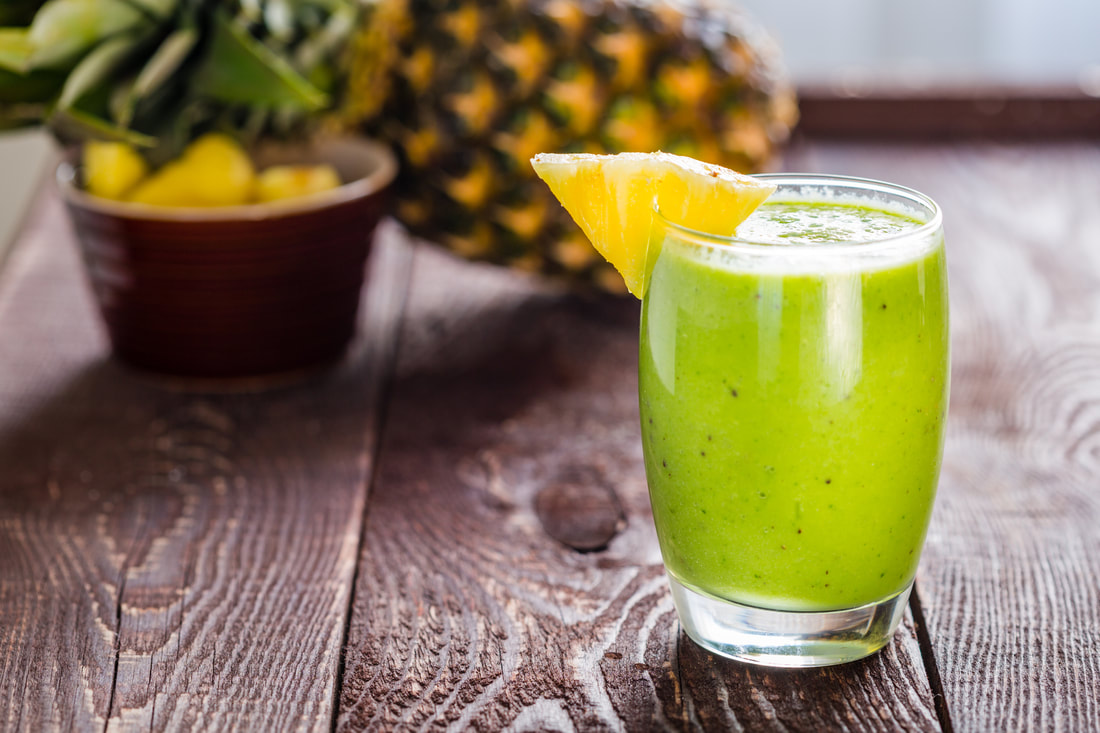Do I Need Digestive Support?
Are tummy troubles getting you down? Do you struggle with bloating, gas, acid reflux, constipation or diarrhea? These are key indicators of digestive issues that require further attention.
One of the first places to look when we are having these struggles is whether or not we have sufficient enzymes to digest our food properly. Without digestive enzymes we can not take up the nutrients from our food.
So, let’s dive into a few of the common digestive enzymes, what they do, and how supplementing with enzymes can support digestion, metabolism and overall health.
One of the first places to look when we are having these struggles is whether or not we have sufficient enzymes to digest our food properly. Without digestive enzymes we can not take up the nutrients from our food.
So, let’s dive into a few of the common digestive enzymes, what they do, and how supplementing with enzymes can support digestion, metabolism and overall health.
What Are Digestive Enzymes?
Enzymes are compounds that help critical biochemical reactions to happen in our body. These reactions can be anything, from making neurotransmitters like serotonin, to burning food for energy, to breaking down food we eat into smaller pieces that can be absorbed.
All of the “macronutrients” we eat including proteins, carbs and fats need to be broken down into smaller particles so that we can properly absorb and digest them. Foods are broken down into amino acids, fatty acids, cholesterol, nucleic acids, simple sugars, etc. If we don't have the necessary digestive enzymes, foods do not break down and we don’t absorb them properly. This can lead to symptoms of fatigue, nutritional deficiency, digestive distress, or a host of other issues.
Fun Fact : The names of most digestive enzymes end in "ase".
The most common digestive enzymes are:
All of the “macronutrients” we eat including proteins, carbs and fats need to be broken down into smaller particles so that we can properly absorb and digest them. Foods are broken down into amino acids, fatty acids, cholesterol, nucleic acids, simple sugars, etc. If we don't have the necessary digestive enzymes, foods do not break down and we don’t absorb them properly. This can lead to symptoms of fatigue, nutritional deficiency, digestive distress, or a host of other issues.
Fun Fact : The names of most digestive enzymes end in "ase".
The most common digestive enzymes are:
- Lactase - Helps to break down lactose into sugars.
- Amylase - Helps to break down starch into sugars.
- Protease - Helps to break down protein into amino acids.
- Lipase - Helps to break down fats into lipids.
- Alpha-Galactosidase - Helps to break down specific “fermentable carbohydrates” into sugars.
- Bromelain and/or Papain - Helps to break down protein into amino acids.
Signs Of Digestive Enzyme Deficiency
The most common symptoms of digestive enzymes deficiency are bloating, cramping and diarrhea, particularly if it happens after eating certain foods. One example would be lactose-intolerance symptoms after eating dairy.
You may be wondering what causes digestive enzyme deficiencies. Many factors affect the level of enzymes our body produces.
Digestive enzymes are not just beneficial but they are essential for overall health. If we are struggling with poor digestive function, malnutrition, enzyme insufficiency or a disease that interferes with the digestive process it may be beneficial to supplement with digestive enzymes. Many find relief once having adequate digestive enzymes.
You may be wondering what causes digestive enzyme deficiencies. Many factors affect the level of enzymes our body produces.
- Chronic stress is the most common reason for digestive enzyme problems. When we are stressed and in a state of "fight or flight" digestion becomes a low priority for the body. This can lead to impaired enzyme output.
- Health conditions can impair optimal enzyme production. For example conditions such as Crohn's disease, ulcerative colitis, cystic fibrosis, diverticulitis, constipation or diarrhea as well as chronic inflammation can lead to low enzyme production.
- Age-related enzyme decline can affect digestion. Aging is related to a decrease in acidity in the stomach which creates a more alkaline environment. This can have an effect of digestive function. As we age, organs such as salivary glands, stomach, pancreas and small the intestine sustain gradual cumulative damage which impairs their ability to function properly.
- Poor diets consisting of processed foods that lack nutrients can also diminish enzyme production. Processed foods demand an enormous amount of digestive enzymes in order to be broken down effectively. This is due to their highly processed nature and additives and the fact that they no longer contain the enzymes that are contained in fresh, raw foods.
Digestive enzymes are not just beneficial but they are essential for overall health. If we are struggling with poor digestive function, malnutrition, enzyme insufficiency or a disease that interferes with the digestive process it may be beneficial to supplement with digestive enzymes. Many find relief once having adequate digestive enzymes.
Tips to Aid Digestion
I find that many individuals with digestive issues want to jump straight into using supplements to get some relief. However, I always recommend lifestyle strategies first to help correct imbalances and reduce symptoms. Food and lifestyle choices are key for optimal digestion and overall health. If we need extra support, digestive enzymes would be the next step.
These are my top tips to aid digestion:
Slow Down and Chew More
My first recommendation for digestive distress would be to relax while eating and to slow down and chew more. Aim for 15 -20 chews per bite. This helps to break down food and can put less stress on our digestive tract.
Eat Whole Foods
Eating plenty of fibre rich vegetables and fruits, whole grains, legumes and nuts and seeds along with some healthy fats and easily digested protein will all promote better digestive health.
Stay Hydrated
We need to drink plenty of mineral rich water. Water should not be consumed with or just after meals, as it can dilute digestive juices and reduce food digestion and nutrient absorption.
Watch for Food Intolerances
Pay attention to foods that may be triggering digestive distress. Keep a food journal and record how you are feeling after eating and list any digestive issues arising after eating certain foods. This will help you recognize the foods that are triggering digestive distress. Try eliminating possible trigger foods from your diet for a period of time. Continue to record positive or negative changes to see if digestion improves.
If digestive issues persist after incorporating these strategies it may be beneficial to add in digestive enzymes. When choosing a enzyme, a full-spectrum enzyme blend is the ideal choice.
These are my top tips to aid digestion:
Slow Down and Chew More
My first recommendation for digestive distress would be to relax while eating and to slow down and chew more. Aim for 15 -20 chews per bite. This helps to break down food and can put less stress on our digestive tract.
Eat Whole Foods
Eating plenty of fibre rich vegetables and fruits, whole grains, legumes and nuts and seeds along with some healthy fats and easily digested protein will all promote better digestive health.
Stay Hydrated
We need to drink plenty of mineral rich water. Water should not be consumed with or just after meals, as it can dilute digestive juices and reduce food digestion and nutrient absorption.
Watch for Food Intolerances
Pay attention to foods that may be triggering digestive distress. Keep a food journal and record how you are feeling after eating and list any digestive issues arising after eating certain foods. This will help you recognize the foods that are triggering digestive distress. Try eliminating possible trigger foods from your diet for a period of time. Continue to record positive or negative changes to see if digestion improves.
If digestive issues persist after incorporating these strategies it may be beneficial to add in digestive enzymes. When choosing a enzyme, a full-spectrum enzyme blend is the ideal choice.
Tropical Soothing Smoothie
Are you looking for a simple way to increase enzymes with whole foods?
Try my Tropical Soothing Recipe. It is rich in enzymes for optimal digestion. It includes pineapple which contains the enzyme bromelain and papaya which contains the enzyme papain. Kale contains the largest concentrations of health-promoting sulfur compounds which increase the livers ability to produce enzymes that neutralize potentially toxic substances.
Recipe: Tropical Soothing Smoothie
Serves 1
Ingredients:
Put all ingredients into the blender and blend.
Serve & enjoy!
Try my Tropical Soothing Recipe. It is rich in enzymes for optimal digestion. It includes pineapple which contains the enzyme bromelain and papaya which contains the enzyme papain. Kale contains the largest concentrations of health-promoting sulfur compounds which increase the livers ability to produce enzymes that neutralize potentially toxic substances.
Recipe: Tropical Soothing Smoothie
Serves 1
Ingredients:
- 1/2 cup pineapple, diced
- 1/2 cup papaya, diced
- 1/2 cup diced cucumber
- 1 juice from a fresh lime
- 1 tbsp coconut oil
- 4 ice cubes
Put all ingredients into the blender and blend.
Serve & enjoy!
Simple Wins:
"After 6 months of following Cheryl’s plan, I feel much calmer, more energetic and healthier. This approach just makes sense. You’ve got the plan that tackles health from all angles: education, support, recipes, proper supplements, accountability, and faith in your clients. Thank you Cheryl!"
~ Simple Swaps Member: Cindy
"After 6 months of following Cheryl’s plan, I feel much calmer, more energetic and healthier. This approach just makes sense. You’ve got the plan that tackles health from all angles: education, support, recipes, proper supplements, accountability, and faith in your clients. Thank you Cheryl!"
~ Simple Swaps Member: Cindy
One Small Change at a Time
| Are you struggling with poor digestion? Still have questions regarding digestive enzymes? Or not sure where to begin? I am just a phone call away. Click the button below to book your free 30 minute health coaching session. I want to hear about your struggles and any questions regarding digestive enzymes or any other health related topics you want to discuss. I would love to share simple tips to start you on your journey to vibrant health and a lean body. |





